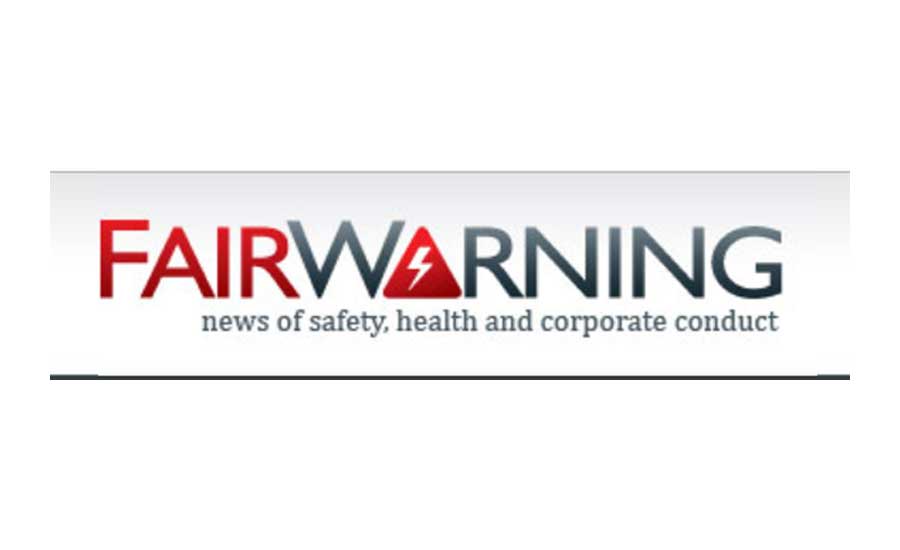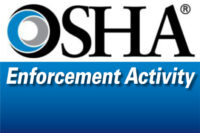Last October, Erick Solis, a 19-year-old temp worker at a Los Angeles food company, lost two fingers when his hand got caught in an unguarded dough-rolling machine.
Cal/OSHA, the state job safety agency, cited the company, JSL Foods Inc., for willful violations because an almost identical accident had happened before.
As it had also done previously, Cal/OSHA cited PriorityWorkforce Inc., the staffing agency that sent Solis to the food plant, for failing to provide adequate safety training.
A FairWarning review of Cal/OSHA records found that since the start of 2014, PriorityWorkforce and affiliated staffing companies have been cited for safety violations in at least 11 cases, including five times following accidents that killed one employee and injured four others. Among the violations cited in some of these cases was a lack of safety training. Some of the citations are still being contested.
Studies show that temp workers suffer higher injury rates than permanent employees, due at least in part to lack of experience and safety training. Under state and federal job safety rules, employers are required to train temps as well as permanent employees on safe work practices.
PriorityWorkforce, based in Tustin, CA, boasts 650 clients, and is among a string of staffing firms headed by Orange County businessman John Porrello that operate in California and several other states. In January, PriorityWorkforce announced the launch of a new enterprise—a nonprofit called Off the Street, Back to Work—to line up jobs for homeless people.
Despite several phone calls and a letter, FairWarning was unable to reach Porrello to discuss the foundation or his companies’ history with Cal/OSHA.
| Want more stories like this? Sign up here to get news alerts. |
The website for Off the Street, Back to Work features glowing testimonials and two news articles (here and here) about the group’s mission. According to the website, the organization is “committed to helping those down-and-out men and women once again become an integral part of the workforce,” by, among other things, helping them prepare for job interviews.
But other details have been hard to come by. How many homeless people the foundation has placed in temp jobs—and whether they receive safety training—is unclear. In a brief phone call, a representative who would only identify herself as Melissa, said the foundation had placed “four or five” residents of the Orange County Rescue Mission in temporary jobs and one in a permanent position at PriorityWorkforce. A Rescue Mission spokeswoman said only one resident has been hired so far.
The website describes Off the Street, Back to Work as a “non-profit 501.c foundation,” though no group with the name could be found on an Internal Revenue Service database of organizations granted nonprofit status, or in records of the state Attorney General’s registry of charitable trusts, a spokesman there said.
California law doesn’t prohibit sending temp workers to companies with histories of safety violations, according to a Cal/OSHA spokesman. The American Staffing Association, a trade group, encourages its members to vet potential clients because they can be held jointly responsible for unsafe conditions. Porrello, in an interview with a trade publication in 2006, stressed the importance of screening client job sites before sending in workers.
“If you put good people to work in safe places, you’ll be in good shape,” he said in the interview, adding that he’s walked away from potential clients.
But violations in the temp-staffing world are common, and firms typically get dinged with smaller penalties than their clients.
“I think the policy rationale behind that is to assess a greater fine to the party that was in control of the worksite… and in the vast majority of circumstances that’s the client,” said Stephen Dwyer, general counsel of the staffing association.
Case in point: In April, Cal/OSHA sought penalties of $276,435 from JSL Foods stemming from Solis’ accident, while PriorityWorkforce faces a proposed penalty of $29,250. Both companies have contested the citations and appeals are pending. JSL Foods did not return phone calls.
A Cal/OSHA press release noted that JSL workers were injured due to similar violations in 2015. Yet more accidents occurred at JSL in 2012, when a temp worker lost fingers and another suffered a crushed hand.
According to data from the U.S. Bureau of Labor Statistics, 349 temp workers were killed on the job from 2003 through 2017. A recent study in the American Journal of Industrial Medicine found that temp workers are less likely to get safety training and more likely to file workers’ compensation claims than permanent employees. The study also noted that the staffing industry is competitive, and that firms are wary of alienating clients by harping on safety.
According to a recent report by WorkSafe, a California labor advocacy group, staffing firms and their clients often try to pass off safety responsibilities to each other. This increases risks for temp workers, who are often unfamiliar with the hazards of a particular workplace, and less likely to complain about dangerous conditions.
“It’s the most vulnerable population with the least amount of information,” said Peter Dooley, a safety and health consultant for the nonprofit National Council for Occupational Safety and Health. “Immigrant workers, low-wage workers—the folks who have the least ability to challenge these situations.”
Dwyer of the American Staffing Association said that economic incentives drive firms to keep their labor supply safe. “A staffing firm isn’t going to be successful if it places workers in a dangerous environment,” he said.
In 2016, a temp employee working for PriorityWorkforce was killed in a forklift accident at a Downey recycling plant. Cal/OSHA proposed a $45,750 fine against the staffing firm for failing to train employees on the safe use of forklifts. PriorityWorkforce has appealed the citation. In 2014, PriorityWorkforce was cited for serious violations after a temp worker’s finger was amputated in an accident involving a dough machine.
Erick Solis, the PriorityWorkforce employee who had his fingers torn off at JSL Foods, told FairWarning through an interpreter that it was his first time cleaning the machine. According to Cal/OSHA records, the guarding on the dough machine was substandard because it didn’t keep fingers from slipping through.
Said Ayk Dikijian, the attorney for Solis in his workers’ compensation case: “This incident has forever maimed Erick and changed his life.”
About FairWarning
This story was reported by FairWarning (www.fairwarning.org), a nonprofit news organization based in Pasadena, Calif., that focuses on public health, safety and environmental issues.







.jpg?t=1721257160)
